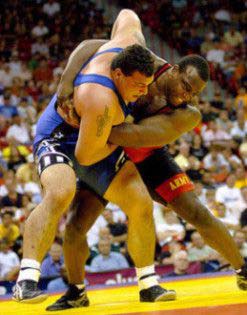5 Key Issues in Depth Psychotherapy for Men, Part 2

In the first part of this post on depth case studies for men, I looked at the first 3 of 5 key issues that can often confront men in therapy; here are the other two.

As I mentioned in Part 1, these issues have much in common with key issues for women in case studies. But the ways that they differ for men are tied up closely with the whole meaning of what it is to be male.
4) Competitiveness vs. Connection
It’s often difficult for men to acknowledge their own receptive dimension and weaknesses, due to the threat of competition and possible judgment from other men. Very often, from the youngest age, boys are treated with shame for displaying vulnerability.
Often, self-shaming can get incorporated into the inner dialogue of a man, so that he shames himself when he is confronted with his own vulnerability. So a man often develops a deep aversion to displaying anything that comes remotely close to vulnerability. Sometimes the avoidance of intimacy and vulnerability becomes so acute that the only way that two men can express affection for each other is to trade insults.
Genuine connection between people requires vulnerability. If as a male I crave intimacy, I have to accept that others will see my weaknesses and the places where I might have flaws.
Women, too, may reinforce male competitiveness and men’s lack of self-acceptance. It’s not always easy for women to easily accept a man who departs from deeply culturally embedded stereotypes of so-called “rugged” masculinity.
[hs_form id=”17″]
5) Individuality vs Individualism
This key issue is crucially related to the last point, in that it is connected to the whole issue of men and competitiveness — but it also goes beyond it.

Males are very caught up in individualism here in North America. The myth evoked by the image of the Marlboro Man is very much alive in our psyches. Our culture has the idea that men should not only have initiative, but should go beyond that: somehow the “real man” or hero figure is someone who goes it very largely alone. Each one should pursue his own advantage, and interdependence or cooperation is somehow very suspect — perhaps effeminate? This dynamic draws its energy from the archetype of the hunter.
What we don’t so easily see is that pursuing goals individualistically is not the same thing as individuation. Men in our time need the courage to be genuinely individual, to be genuinely in ourselves, no matter what anyone else may think of it, as opposed to merely pursuing my own individual advantage in a competitive and comparatively unreflective way.
Some key questions: What is it to be genuinely individual? What does that mean for you? When are the moments that you feel truly, individually you, with no pretense?
Individual case studies for men is about men truly taking in their own individual stories, and their own nature, and really living in the experience of who they are.
